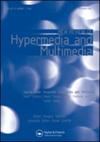Implicit negative link detection on online political networks via matrix tri-factorizations
IF 0.8
4区 计算机科学
Q3 COMPUTER SCIENCE, INFORMATION SYSTEMS
引用次数: 0
Abstract
ABSTRACT Political conversations have become a ubiquitous part of social media. When users interact and engage in discussions, there are usually two mediums available to them; textual conversations and platform-specific interactions such as like, share (Facebook) or retweet (Twitter). Major social media platforms do not facilitate users with negative interaction options. However, many political network analysis tasks rely on not only positive but also negative linkages. Thus, detecting implicit negative links is an important and a challenging task. In this work, we propose an unsupervised framework utilising positive interactions, sentiment cues, and socially balanced triads for detecting implicit negative links. We also present an online variant of it for streaming data tasks. We show the effectiveness of both frameworks with experiments on two annotated datasets of politician Twitter accounts. Our experiments show that the proposed frameworks outperform other well-known and proposed baselines. To illustrate the detected implicit negative links' contribution, we compare the community detection accuracies using unsigned and signed networks. Experimental results using detected negative links show superiority on the three datasets where the camps are known a priori. We also present qualitative evaluations of polarisation patterns between communities which are only possible in the presence of negative links.基于矩阵三因子分解的在线政治网络隐式负链接检测
摘要政治对话已经成为社交媒体中无处不在的一部分。当用户进行互动和讨论时,通常有两种媒介可供他们使用;文本对话和特定平台的互动,如点赞、分享(Facebook)或转发(Twitter)。主要的社交媒体平台不为用户提供负面互动选项。然而,许多政治网络分析任务不仅依赖于积极的联系,还依赖于消极的联系。因此,检测隐含的负面联系是一项重要而富有挑战性的任务。在这项工作中,我们提出了一个无监督的框架,利用积极的互动、情绪线索和社会平衡的三元组来检测隐含的负面联系。我们还为流数据任务提供了它的在线变体。我们在政治家推特账户的两个注释数据集上进行了实验,展示了这两个框架的有效性。我们的实验表明,所提出的框架优于其他众所周知的和提出的基线。为了说明检测到的隐含负链接的贡献,我们比较了使用无符号网络和有符号网络的社区检测精度。使用检测到的负链接的实验结果显示,在先验已知营地的三个数据集上具有优势。我们还对社区之间的两极分化模式进行了定性评估,这只有在存在负面联系的情况下才有可能。
本文章由计算机程序翻译,如有差异,请以英文原文为准。
求助全文
约1分钟内获得全文
求助全文
来源期刊

New Review of Hypermedia and Multimedia
COMPUTER SCIENCE, INFORMATION SYSTEMS-
CiteScore
3.40
自引率
0.00%
发文量
4
审稿时长
>12 weeks
期刊介绍:
The New Review of Hypermedia and Multimedia (NRHM) is an interdisciplinary journal providing a focus for research covering practical and theoretical developments in hypermedia, hypertext, and interactive multimedia.
 求助内容:
求助内容: 应助结果提醒方式:
应助结果提醒方式:


